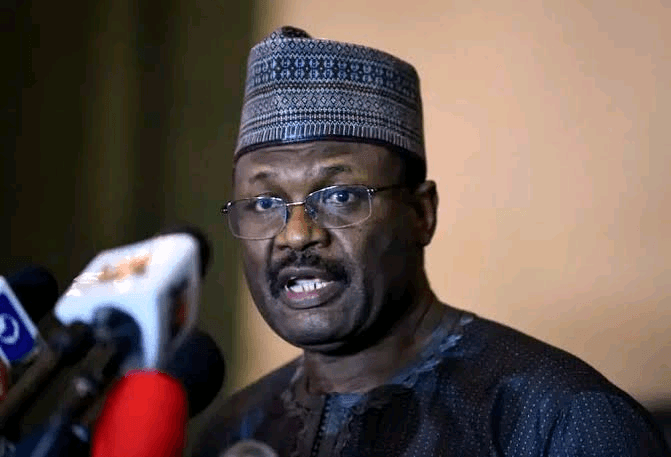From Abba Dukawa, Abuja
The Chairman of the Independent National Electoral Commission (INEC), Prof. Mahmood Yakubu, has disclosed that 774 alleged electoral offenders from the 2023 general elections are currently facing prosecution across the country.
Speaking at the first quarterly meeting with media executives on Friday, Yakubu stated that the prosecutions are being conducted in collaboration with the Nigerian Bar Association (NBA).
However, he expressed concerns over delays in the judicial process due to the absence of an electoral offenses tribunal and a defined timeframe for handling such cases.
He noted that regular courts, already burdened with multiple responsibilities, often fail to give electoral offenses the urgent attention they require.
Yakubu also revealed that INEC, in partnership with the Economic and Financial Crimes Commission (EFCC), has successfully prosecuted some electoral offenders.
He emphasized the need for reforms in the prosecution of electoral offenses, citing recent judicial and legislative actions aimed at holding INEC officials accountable for their roles in the electoral process.
“The recent successful prosecution of a Returning Officer in Akwa Ibom State is a case in point. The Commission has diligently pursued this case, which arose from the 2019 General Election. It took nearly six years to secure a conviction at the trial court,” he said.
Through INEC’s collaboration with the NBA, 774 alleged offenders from the 2023 general elections are currently being prosecuted.
Yakubu highlighted that successful convictions have been recorded in Kebbi and Kogi States, while the Commission’s collaboration with the EFCC has yielded similar results in Lagos, Kwara, and Gombe States. However, many cases remain pending.
Yakubu identified a major obstacle to the swift dispensation of justice: the absence of a dedicated electoral offenses tribunal. Unlike post-election cases handled by tribunals with specific timelines, electoral offenses are prosecuted in Magistrate and State High Courts in the jurisdictions where they occur.
Since these courts handle a wide range of cases, electoral offenses are often not prioritized, leading to prolonged trials.
“Consequently, electoral offenses are carried over from one general election to another, which sometimes affects the diligent prosecution of cases. It is, therefore, imperative to renew our call for the creation of an Electoral Offenses Tribunal with specific jurisdiction and a limited timeframe to ensure the speedy dispensation of justice. I urge the media to join in this patriotic advocacy for the good of our electoral democracy,” he stated.
Yakubu reaffirmed INEC’s commitment to partnering with the media, especially the Nigeria Union of Journalists (NUJ), as a key stakeholder in the electoral process.
“In the recent off-cycle governorship elections, 114 accredited media organizations deployed 721 personnel to cover the Edo State election, while 112 organizations deployed over 700 personnel for the Ondo State election. We look forward to continued collaboration in all upcoming elections and electoral activities,” he said.
Providing updates on upcoming elections, Yakubu stated that preparations are underway for the Anambra Governorship Election, scheduled for November 8, 2025, with party primaries set to take place from March 20 to April 10, 2025.
Similarly, the Federal Capital Territory (FCT) Area Council Election will be held on February 21, 2026, with major activities, including party primaries and candidate nominations for 68 constituencies (six Area Council Chairmen and 62 Councillors), scheduled between June 9 and June 30, 2025.
Additionally, he noted an increasing number of bye-elections due to vacancies in legislative seats. In the past three weeks, one Federal Constituency and two State Constituencies have become vacant due to the deaths of serving members.
Another State Constituency seat was declared vacant due to absenteeism, in line with Section 109(1)(f) of the 1999 Constitution (as amended).
Yakubu assured stakeholders of INEC’s dedication to continuous improvements in the electoral process.
“Every election presents unique challenges and opportunities for learning. The recent Ondo State Governorship Election has been widely acknowledged as an improvement, particularly in logistics management and the performance of election technology.
“We will continue striving for better elections, but electoral reform requires a multi-stakeholder approach. We appeal for sustained support, especially in critical areas of reform,” he concluded.


